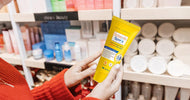
How to Negotiate the Best Deals with Sunscreen Wholesale Suppliers
, by karissa kart, 5 min reading time

, by karissa kart, 5 min reading time
As summer looms and the sun gets fierce, sunscreen becomes necessary for businesses like retail stores, spas, or hotels. Buying in bulk can strain your budget, but negotiating smartly with wholesale suppliers can slash costs and keep your inventory stocked with top-notch products. This guide walks you through actionable steps to secure great deals and build lasting supplier ties without the stress.
Negotiating starts with the groundwork. The wholesale sunscreen market isn’t just about hunting for the lowest price; it’s about balancing cost with quality and timing. Sunscreens vary widely. SPF has 30 lotions, water-resistant sprays, and eco-friendly formulas, each with a price tag. Bulk buying saves money, but quality can’t slip. A bad batch could tank your reputation.
Product Quality and Certifications: When scoping out suppliers, prioritize product quality and certifications. Look for sunscreens that meet FDA or other safety standards that are crucial for customer trust. Certifications like cruelty-free or reef-safe can boost appeal, giving buyers more reasons to choose your stock. Quality isn’t just a perk; it’s a necessity.
Timing’s a factor, too. Demand surges in spring and summer, so suppliers might soften prices in quieter months. Stock up early, and you’ve got leverage for better deals. Know the market, and you’re already ahead.
Prep is everything. Don’t negotiate blind start by researching wholesale sunscreen pricing. Platforms like Alibaba or industry chatter can reveal baselines, like $4 to $6 per unit for SPF 50 lotion. That knowledge keeps you from overpaying.
Define your needs next. How many units? What features? Say you need 1,000 tubes of SPF 30 for a beach store. Set a budget with some flex room. Minimum Order Quantities (MOQs) and Flexibility: Check the supplier’s MOQs, too. Some demand thousands of units, which might overwhelm a small operation. Seek suppliers with flexible MOQs or plan to negotiate this down. It’s a key prep step.
Then, reach out. A quick email or call about their offerings signals intent and starts a connection—handy for haggling later.
Go beyond a quick search. Read supplier reviews, compare quotes, or attend a trade show. If one supplier charges $5 per unit for similar quality and another charges $4.50, you’ve got a bargaining chip.
It's time to talk turkey. Open with enthusiasm about their products and your bulk-buy plans. Ask about pricing, then nudge lower. Want $5 per unit? Try, “Can you do $4.50 for 2,000 units?” They’ll counter, and you can settle near your goal.
Payment Terms and Financial Flexibility: Price isn’t the only lever. Discuss payment terms flexible options like net 60 over net 30 can ease cash flow. Some suppliers sweeten the pot with early payment discounts or bulk order perks. You might even score free shipping or custom labels.
Example: A supplier quotes $6 per unit for 1,000 units. You reply, “I’ve seen $5.50 elsewhere. With 2,000 units, can you meet me closer?” It’s friendly, firm, and shows you’re informed.
Stay adaptable. If the price doesn’t budge, ask for extra samples or a discount next time. Bundle in lip balm or after-sun lotion if they’ve got it. Keep it a chat, not a clash.
A one-off deal is nice, but a steady partnership is better. Suppliers favour loyal buyers, often tossing in perks like lower rates or priority shipping. Supplier Relationships: A strong bond can pay dividends at better prices, first crack at new products, or relaxed terms. Regular chats, timely payments, and feedback on their goods strengthen this tie.
Make it work: Pay promptly, send a “thanks” note, or share sales updates. Suggest a mutual win, like spotlighting their brand in your promos for a price cut.
Imagine this: Six months in, summer’s near. Your supplier offers a new SPF line early or drops a dollar per unit because you’re reliable. That’s the relationship edge.
Keep contact alive. A quarterly call or sales update keeps you at the top of your mind. It’s less about pushing for discounts and more about making negotiation a breeze over time.
Today’s buyers care about the planet. Sustainability and Ethical Sourcing: Quiz suppliers on their practices. Eco-friendly packaging or ethically sourced ingredients can sway conscious customers. This also signals that you’re in it for more than profit, aligning with suppliers who share that vibe.
Say a supplier uses biodegradable tubes or fair-trade materials. You get a standout product, and they get a like-minded partner.
Picking the right supplier? Use this checklist:
Product Quality and Certifications: Does it meet FDA standards? Bonus points for cruelty-free or reef-safe.
Pricing and Payment Terms: Competitive rates? Flexible payment options like net 60 or early pay discounts?
MOQs and Flexibility: Reasonable minimums? Are you willing to adjust your scale?
Sustainability Practices: Eco-packaging or ethical sourcing?
Customer Service and Communication: Quick to respond? Helpful?
Shipping and Delivery Times: Reliable, especially in peak season?
Return Policies: Fair handling of damaged or unsold stock?
Compare suppliers with this, and you’ll land a partner that fits not just the cheapest option.
Negotiating with sunscreen wholesale suppliers is straightforward with the right approach. Master the market, prep thoroughly, negotiate savvy, and build bridges. You’ll snag bulk deals that save money and fuel your business. Try these steps next sun season; you’ll be amazed at the savings and how natural it feels with practice.
This version integrates all your points product quality, payment terms, supplier relationships, MOQs, sustainability, and a checklist while keeping the flow reader-friendly. Each addition enhances the advice without overwhelming the text.



Extra surprise waiting inside!
Shop Valentine Deals